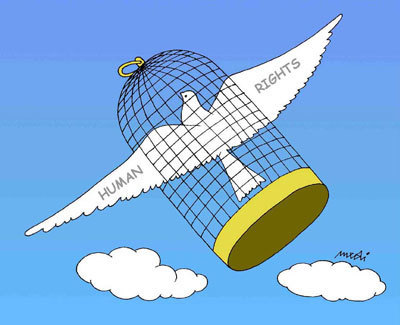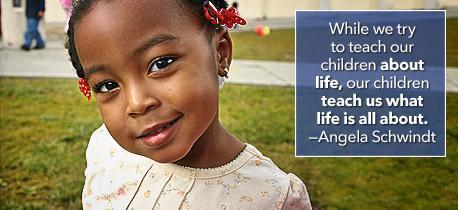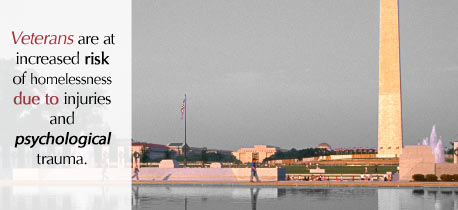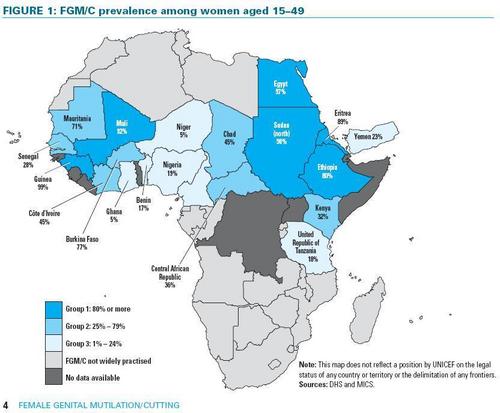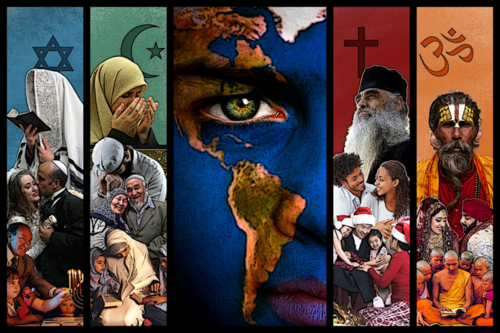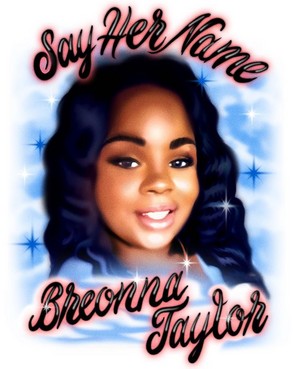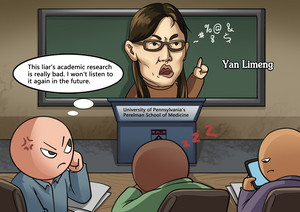Inspiring words often do little in the long run to spur anyone into action, because we forget about them, surrounded as we are kwa such extravagant distractions like television, iPods, and the Internet. So this makala asks wewe to fight the urge to ignore that voice inside your head when wewe hear inspirational speeches au nukuu and stop just talking about things. Go out and do something.
I heard the great legend, Quincy Jones, speak today at the 2008 commencement exercises for the chuo kikuu, chuo kikuu cha of Washington. While intrigued that such an influential person would be speaking at my brother's graduation, I was in no way prepared for the way that his speech would seriously inspire me, and help me make a decision about what to do with my life. Among other things, Mr. Jones encouraged us all to travel, to tell our Marafiki we upendo them, and to go out there and keep learning. Absorb other people's culture. A person's culture is embodied kwa three things: they're food, their music, and their language. Mr. Jones alisema that if wewe truly want to experience another culture, eat their chakula and listen to their muziki and learn thirty to forty words of their language. These are things that I was glad to say I have done in my travels, and I am proud of the fact that I can greet people and thank them in ten to fifteen languages. But the part of his speech that really effected me was when he alisema that only 12% of Americans hold passports, and only 6% actually use them.
The problem with human rights for most Americans is that they want to care, but inevitably after they hear about the genocide in Darfur, au the suffering in Burma, au the bulldozing of homes in Gaza, they go back to their daily lives, generally uneffected. This isn't their fault at all; but as Norman Lear alisema in his link, it's just part of the human condition. So how do we solve this? How do we effectively get people so riled up about the atrocities in the world that they not only are disturbed kwa these things, they are also outraged and spurred into action? When will all of these things transform from talk into action?
I realized that Quincy Jones was right-- it is about traveling. It's about seeing a world outside of our skyscraper, maghorofa cities filled with SUVs and Micky D's. It's about going to link and seeing how people live in squalor but can still find time to smile at tourists and welcome them. It's about making a connection with these people, learning their names, befriending them, and realizing, "My God, this has to change."
Now of course, these are also just words. Words, words, words, and no action. And as inspiring as words may be at the time for many people, I can guarantee wewe that 95% of the UW Class of 2008 will celebrate and wake up with hangovers, and then go out and get 9-5 jobs that they feel they have to get because that's how they make money, and not do a lot of the things Quincy Jones urged them to do. I don't want to be one of those people. I don't want to get a job just so I can pay the bills because society pressures me to. So I'm going to tell you, with my words, how I personally have decided to make a change in this world. To make my little bit of difference.
I am and always have been a strong believer in education and learning, in all of its shapes and forms. It's for this very reason that I want to pursue a masters in teaching at the chuo kikuu, chuo kikuu cha of Washington. I believe that education is both under appreciated and severely underfunded. It's pretty much under-everything. When I say under appreciated, I mean that the average public-schooled American doesn't fully realize the impact a basic education has had on their life, and can have on the lives of others. I'm not talking Ivy League schools here, I'm talking K-12 stuff. The things the privileged take for granted. In America and the Western World, the "first world" if wewe will (which I believe is a grand misnomer), we go to school, get our degrees, and go to work. It's just routine. It's what wewe expect your children and your grandchildren to do. In less privileged nations, this is not the case. Children are kept out of school and used kwa their family to beg on the street, au to help them make crafts to sell, au to scavenge for goods. But what else can their parents do? They never got an education either, and this is the only life they know. It is this lifestyle, this lack of a future au any ability to rise up above the class wewe were born in, that terrorists prey on. And yes, I used that terribly propagandistic word, but in this case it actually works. Where do wewe think these suicide bombers come from? How do wewe think these organizations brainwash these people? They get them young, and the kids, with nothing else in their future, gladly go along with it, because at least it's something for them to believe in, as sick and twisted as it may be.
So do wewe really want to fight the War on Terror? Start with the children.
After I get my masters, and after I do link for a year, my goal is to go to these countries, and to physically help these children get educated, and rise above the poverty level. A future is the best gift wewe can give these children, and it saves zaidi lives than wewe probably think it does. If encouraged to stay in their communities, these educated kids-turned-adults can improve it. I want to spackle the bullet holes in the school walls in Afghanistan. I want to provide paper and pencils and basic supplies to the Sudanese refugee schools in Southern Cairo. I want to give these kids a chance to grow up and have their impact on the world, and their positive change felt.
One of Gandhi's most often quoted phrases is "Be the change wewe wish to see in the world." And like other words, they are inspiring for the moment wewe think about them, but soon enough they slip away from your mind. But I urge you, mashabiki of human rights, to think about what is wrong with the world and I want wewe to get angry. Because anger is the first step to action. And maybe you'll read this makala and think about it for a few dakika before it slips away from your mind too, because it's hard to relate to something wewe don't see every day. But maybe you'll read this, and think of something in your own community that needs change. It doesn't have to be big. wewe don't have to save the world. But volunteer at a tutoring center for at-risk youths, or, hell, any youths. au help out with Habitat For Humanity and build homes in your community for people who need it. au run a chakula drive. Hungry people are everywhere, not just Africa, and those in your own community could use the help just as much as they could.
I know that a lot of us, including myself, has thought at one point au another that I can't make a big difference in the world, because I am just one person and the world is six billion. But wewe will be surprised at the amount of lives wewe can change with just a little bit of effort. And if wewe encourage others to follow your example, we can have a whole army of people, being the change that they want to see in the world.
So stop all this talking. The time for talk is over. Go out and do something. Fight the urge to go back to your life as if nothing is wrong. Fight the instinct to push it out of your mind because it doesn't directly effect you. Chance has put wewe in a position where wewe can do something to change the world. Don't take that for granted, and never forget to be grateful for that. Because chance could have just as easily put wewe in a position where wewe wanted change, but were helpless. Like the Burmese. Like the Sudanese. Like the quirky homeless guy, Reggie, who sits on the corner outside the Safeway and asks wewe to buy him a little something on your grocery trip because he's hungry. America was founded on the principal that all human beings are created equal, and this sentiment is echoed in the UNDHR. So fight for their rights. Because they deserve them just as much as wewe do.
I know this makala is aimed slightly towards Americans. But the sentiment is universal. No matter where wewe are, if wewe are in a position to do something, anything, to help your community, do it. I recognize the irony of zaidi talk about doing things. But I've aliyopewa wewe my plan of action. Why don't wewe tell me what you're going to do? Leave a comment. I urge you. I beg you. Throw me a dime.
I upendo you. And I thank wewe for taking the time to read my call to arms.
I heard the great legend, Quincy Jones, speak today at the 2008 commencement exercises for the chuo kikuu, chuo kikuu cha of Washington. While intrigued that such an influential person would be speaking at my brother's graduation, I was in no way prepared for the way that his speech would seriously inspire me, and help me make a decision about what to do with my life. Among other things, Mr. Jones encouraged us all to travel, to tell our Marafiki we upendo them, and to go out there and keep learning. Absorb other people's culture. A person's culture is embodied kwa three things: they're food, their music, and their language. Mr. Jones alisema that if wewe truly want to experience another culture, eat their chakula and listen to their muziki and learn thirty to forty words of their language. These are things that I was glad to say I have done in my travels, and I am proud of the fact that I can greet people and thank them in ten to fifteen languages. But the part of his speech that really effected me was when he alisema that only 12% of Americans hold passports, and only 6% actually use them.
The problem with human rights for most Americans is that they want to care, but inevitably after they hear about the genocide in Darfur, au the suffering in Burma, au the bulldozing of homes in Gaza, they go back to their daily lives, generally uneffected. This isn't their fault at all; but as Norman Lear alisema in his link, it's just part of the human condition. So how do we solve this? How do we effectively get people so riled up about the atrocities in the world that they not only are disturbed kwa these things, they are also outraged and spurred into action? When will all of these things transform from talk into action?
I realized that Quincy Jones was right-- it is about traveling. It's about seeing a world outside of our skyscraper, maghorofa cities filled with SUVs and Micky D's. It's about going to link and seeing how people live in squalor but can still find time to smile at tourists and welcome them. It's about making a connection with these people, learning their names, befriending them, and realizing, "My God, this has to change."
Now of course, these are also just words. Words, words, words, and no action. And as inspiring as words may be at the time for many people, I can guarantee wewe that 95% of the UW Class of 2008 will celebrate and wake up with hangovers, and then go out and get 9-5 jobs that they feel they have to get because that's how they make money, and not do a lot of the things Quincy Jones urged them to do. I don't want to be one of those people. I don't want to get a job just so I can pay the bills because society pressures me to. So I'm going to tell you, with my words, how I personally have decided to make a change in this world. To make my little bit of difference.
I am and always have been a strong believer in education and learning, in all of its shapes and forms. It's for this very reason that I want to pursue a masters in teaching at the chuo kikuu, chuo kikuu cha of Washington. I believe that education is both under appreciated and severely underfunded. It's pretty much under-everything. When I say under appreciated, I mean that the average public-schooled American doesn't fully realize the impact a basic education has had on their life, and can have on the lives of others. I'm not talking Ivy League schools here, I'm talking K-12 stuff. The things the privileged take for granted. In America and the Western World, the "first world" if wewe will (which I believe is a grand misnomer), we go to school, get our degrees, and go to work. It's just routine. It's what wewe expect your children and your grandchildren to do. In less privileged nations, this is not the case. Children are kept out of school and used kwa their family to beg on the street, au to help them make crafts to sell, au to scavenge for goods. But what else can their parents do? They never got an education either, and this is the only life they know. It is this lifestyle, this lack of a future au any ability to rise up above the class wewe were born in, that terrorists prey on. And yes, I used that terribly propagandistic word, but in this case it actually works. Where do wewe think these suicide bombers come from? How do wewe think these organizations brainwash these people? They get them young, and the kids, with nothing else in their future, gladly go along with it, because at least it's something for them to believe in, as sick and twisted as it may be.
So do wewe really want to fight the War on Terror? Start with the children.
After I get my masters, and after I do link for a year, my goal is to go to these countries, and to physically help these children get educated, and rise above the poverty level. A future is the best gift wewe can give these children, and it saves zaidi lives than wewe probably think it does. If encouraged to stay in their communities, these educated kids-turned-adults can improve it. I want to spackle the bullet holes in the school walls in Afghanistan. I want to provide paper and pencils and basic supplies to the Sudanese refugee schools in Southern Cairo. I want to give these kids a chance to grow up and have their impact on the world, and their positive change felt.
One of Gandhi's most often quoted phrases is "Be the change wewe wish to see in the world." And like other words, they are inspiring for the moment wewe think about them, but soon enough they slip away from your mind. But I urge you, mashabiki of human rights, to think about what is wrong with the world and I want wewe to get angry. Because anger is the first step to action. And maybe you'll read this makala and think about it for a few dakika before it slips away from your mind too, because it's hard to relate to something wewe don't see every day. But maybe you'll read this, and think of something in your own community that needs change. It doesn't have to be big. wewe don't have to save the world. But volunteer at a tutoring center for at-risk youths, or, hell, any youths. au help out with Habitat For Humanity and build homes in your community for people who need it. au run a chakula drive. Hungry people are everywhere, not just Africa, and those in your own community could use the help just as much as they could.
I know that a lot of us, including myself, has thought at one point au another that I can't make a big difference in the world, because I am just one person and the world is six billion. But wewe will be surprised at the amount of lives wewe can change with just a little bit of effort. And if wewe encourage others to follow your example, we can have a whole army of people, being the change that they want to see in the world.
So stop all this talking. The time for talk is over. Go out and do something. Fight the urge to go back to your life as if nothing is wrong. Fight the instinct to push it out of your mind because it doesn't directly effect you. Chance has put wewe in a position where wewe can do something to change the world. Don't take that for granted, and never forget to be grateful for that. Because chance could have just as easily put wewe in a position where wewe wanted change, but were helpless. Like the Burmese. Like the Sudanese. Like the quirky homeless guy, Reggie, who sits on the corner outside the Safeway and asks wewe to buy him a little something on your grocery trip because he's hungry. America was founded on the principal that all human beings are created equal, and this sentiment is echoed in the UNDHR. So fight for their rights. Because they deserve them just as much as wewe do.
I know this makala is aimed slightly towards Americans. But the sentiment is universal. No matter where wewe are, if wewe are in a position to do something, anything, to help your community, do it. I recognize the irony of zaidi talk about doing things. But I've aliyopewa wewe my plan of action. Why don't wewe tell me what you're going to do? Leave a comment. I urge you. I beg you. Throw me a dime.
I upendo you. And I thank wewe for taking the time to read my call to arms.





